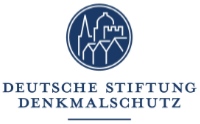How can towns and regions be adapted to demographic, socio-economic, ecological and societal changes?
How can a deep transformation to sustainability in the existing built environment succeed?
What opportunities does the revitalisation of small and medium-sized towns offer for avoiding new construction and the associated use of resources in urban centres, as well as for preserving quality of life and cultural heritage locally?
How do transformation processes succeed in towns with limited transformative capacities and in regions affected by structural change?
The IZS in Görlitz deals with these questions. The centre pursues a transdisciplinary approach in which the identification of research needs, the production of knowledge, the pilot application of new solutions as well as reflection and further development take place in cooperation with stakeholders in urban and regional development. The interdisciplinary and transdisciplinary research is complemented by transfer activities in the region as well as on a national and international level. The twin city of Görlitz/Zgorzelec serves as a permanent real-world laboratory. One focus of the centre's international networking is the Central and Eastern European region.
The IZS is a joint facility of the Leibniz Institute for Ecological Urban and Regional Development Dresden and the International Institute (IHI) Zittau of TUD Dresden University of Technology. Further partners are the city of Görlitz with the municipal housing company KommWohnen and the German Foundation for Monument Protection.
The location of Görlitz offers us an exciting research environment with distinctive challenges and potentials of urban transformation, e.g. due to the extensive historical building fabric in the city, the shrunken urban population, the structural change since 1990 as well as current efforts to achieve climate-neutral urban development by 2030. The IZS emerged in 2014 from the Görlitz Competence Centre for Revitalising Urban Development.


